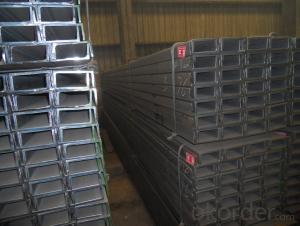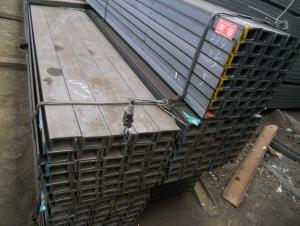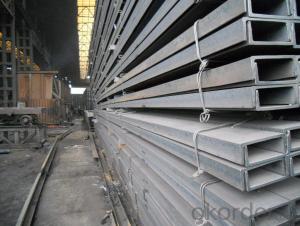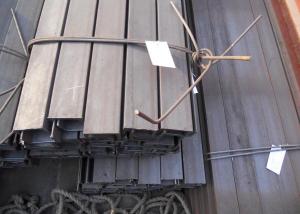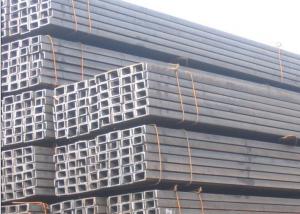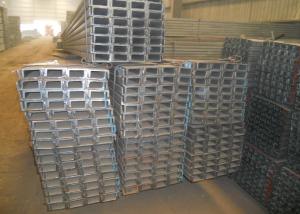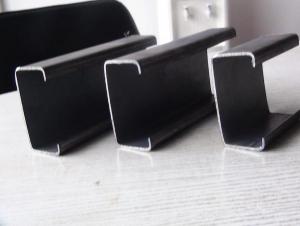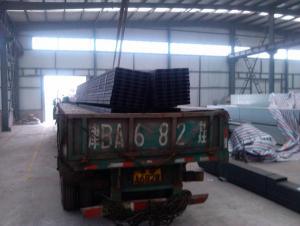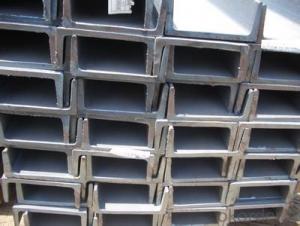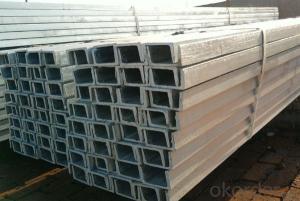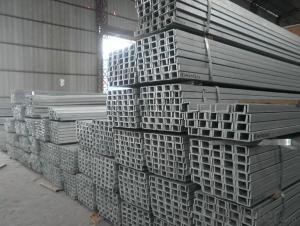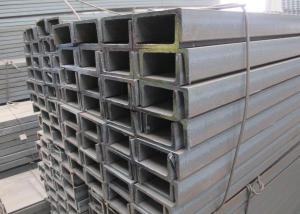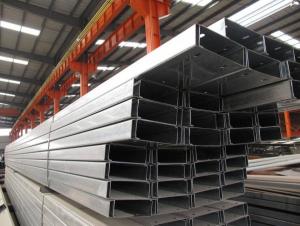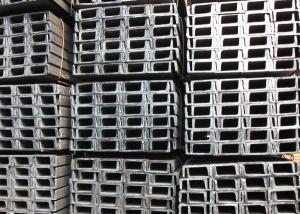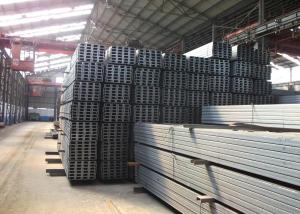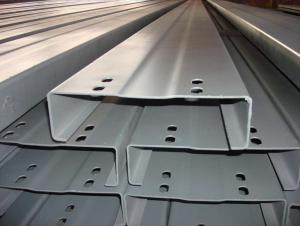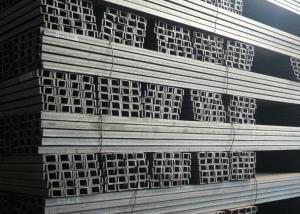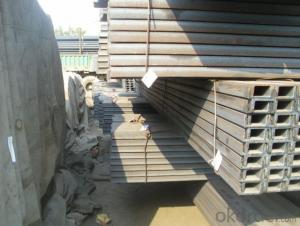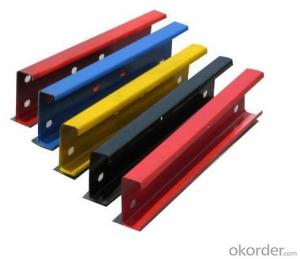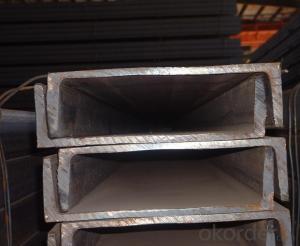Hot Rolled Steel U Channel UPN EN Standard
- Loading Port:
- China main port
- Payment Terms:
- TT OR LC
- Min Order Qty:
- 100 m.t.
- Supply Capability:
- 10000 m.t./month
OKorder Service Pledge
OKorder Financial Service
You Might Also Like
Product Description:
OKorder is offering Hot Rolled Steel U Channel UPN EN Standard at great prices with worldwide shipping. Our supplier is a world-class manufacturer of steel, with our products utilized the world over. OKorder annually supplies products to African, South American and Asian markets. We provide quotations within 24 hours of receiving an inquiry and guarantee competitive prices.
Product Applications:
Hot Rolled Steel U Channel UPN EN Standard are ideal for structural applications and are widely used in the construction of buildings and bridges, and the manufacturing, petrochemical, and transportation industries.
Product Advantages:
OKorder's Hot Rolled Steel U Channel UPN EN Standard are durable, strong, and wide variety of sizes.
Main Product Features:
· Premium quality
· Prompt delivery & seaworthy packing (30 days after receiving deposit)
· Can be recycled and reused
· Mill test certification
· Professional Service
· Competitive pricing
Product Specifications:
Manufacture: Hot rolled
Grade: Q195 – 235
Certificates: ISO, SGS, BV, CIQ
Length: 6m – 12m, as per customer request
Packaging: Export packing, nude packing, bundled
| EN STANDARD CHANNEL (UPN) | ||||||
| SIZE(MM) | h(mm) | b(mm) | s(mm) | t(mm) | kg/m | length |
| 80x45x6x8 | 80 | 45 | 6 | 8 | 8.64 | 6m,12m |
| 100X50x6x8.5 | 100 | 50 | 6 | 8.5 | 10.6 | 6m,12m |
| 120x55x7x9 | 120 | 55 | 7 | 9 | 13.4 | 6m,12m |
| 140x60x7x10 | 140 | 50 | 7 | 10 | 16 | 6m,12m |
| 160x65x7.5x10.5 | 160 | 65 | 7.5 | 10.5 | 18.8 | 6m,12m |
| 180x70x8x11 | 180 | 70 | 8 | 11 | 22 | 6m,12m |
FAQ:
Q1: How do we guarantee the quality of our products?
A1: We have established an advanced quality management system which conducts strict quality tests at every step, from raw materials to the final product. At the same time, we provide extensive follow-up service assurances as required.
Q2: what is the difference between actual weight and theoretical weight?
A2: All the section steel has two weights: actual weight and theoretical weight. Actual weight is the weighing out when the product delivered from the mill. Theoretical weight is calculated by pieces. The invoice can be based on each of them as your request.
Q3: How many tons of steel products could be loaded in containers?
A3: Usually the steel products are delivered by bulk vessel because of the large quantity and the freight. However, there are no bulk vessel enter some seaports so that we have to deliver the cargo by containers. The 6m steel product can be loaded in 20FT container, but the quantity is changed according to the size, usually from 18tons to 25tons.
Images:
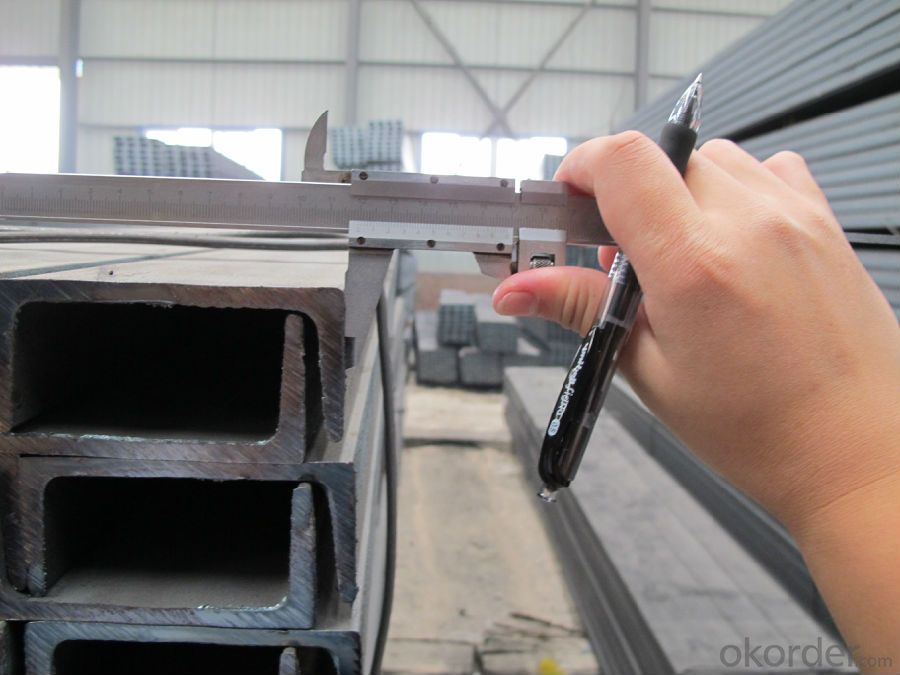
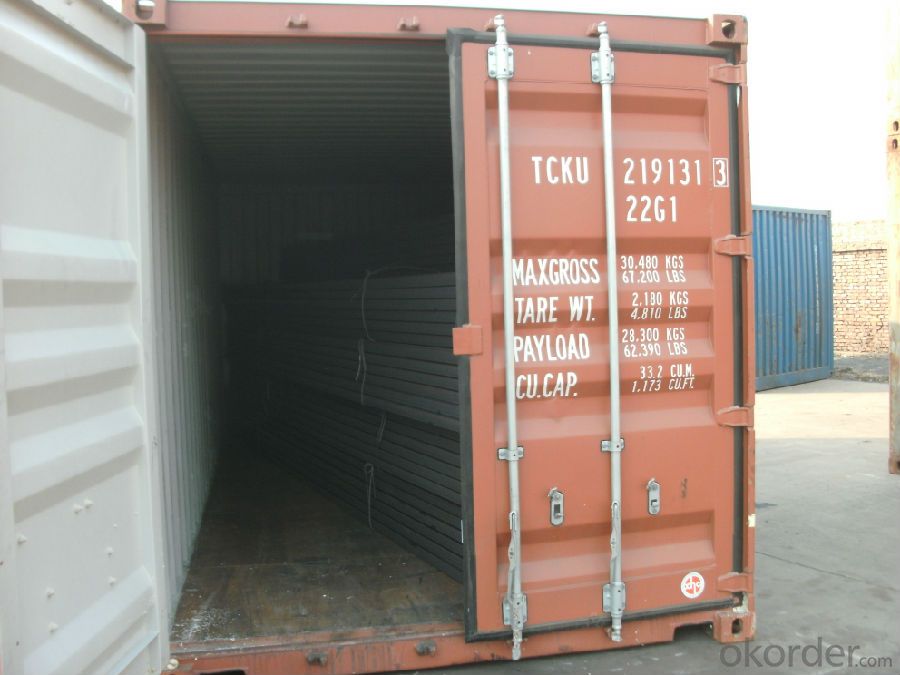
- Q:Can steel channels be used for creating support structures for electrical systems?
- Indeed, support structures for electrical systems can be fashioned using steel channels. Due to their robustness, longevity, and adaptability, steel channels are frequently employed in construction and engineering undertakings. They furnish a sturdy and unwavering framework capable of sustaining the load of electrical components and systems. Moreover, steel channels lend themselves well to fabrication and customization, allowing for seamless adherence to precise design specifications, rendering them an optimal choice for crafting support structures for electrical systems.
- Q:How do steel channels perform in corrosive chemical environments?
- Steel channels generally perform well in corrosive chemical environments due to their high resistance to corrosion. This is primarily because steel, especially stainless steel, forms a protective oxide layer that prevents or slows down the corrosion process. However, the exact performance can vary depending on the specific chemical environment and concentration. It is important to consider the corrosive properties of the chemicals and consult with experts or engineers to select the appropriate type and grade of steel channel for optimal performance and longevity in corrosive chemical environments.
- Q:What are the advantages of using steel channels over other materials?
- There are several advantages of using steel channels over other materials: 1. Strength and Durability: Steel channels are known for their high strength and durability. They can withstand heavy loads and provide structural stability, making them suitable for various applications in construction and engineering. 2. Versatility: Steel channels can be easily shaped and manipulated to fit specific requirements. They can be cut, welded, and bent into different shapes and sizes, allowing for flexibility in design and construction projects. 3. Cost-Effective: Steel channels are a cost-effective choice compared to other materials like aluminum or wood. They require minimal maintenance, have a longer lifespan, and can be recycled, reducing the overall costs associated with construction and maintenance. 4. Fire Resistance: Steel channels have inherent fire resistance properties, making them a safer choice in building structures. They do not contribute to the spread of fire and provide additional time for evacuation in case of emergencies. 5. Sustainability: Steel is a highly sustainable material as it can be recycled indefinitely without losing its properties. Choosing steel channels over other materials promotes environmental conservation and reduces the carbon footprint associated with construction projects. 6. Resistance to Corrosion: Steel channels can be treated with coatings or galvanized to enhance their resistance to corrosion. This makes them suitable for outdoor applications where they might be exposed to moisture, humidity, or other corrosive elements. 7. Structural Integrity: Steel channels provide excellent structural integrity, ensuring that the components they support remain stable and secure. This is particularly important in applications where safety and load-bearing capacity are crucial, such as bridges, high-rise buildings, or industrial structures. In summary, the advantages of using steel channels over other materials include their strength, durability, versatility, cost-effectiveness, fire resistance, sustainability, resistance to corrosion, and ability to maintain structural integrity. These benefits make steel channels a preferred choice for various construction and engineering projects.
- Q:How do steel channels perform in high-traffic areas?
- Due to their durability and strength, steel channels are highly effective in high-traffic areas. These channels, also known as steel C-channels, are commonly used in construction and industrial projects to provide support and stability. Their robustness ensures they can withstand heavy loads, impacts, and constant foot traffic without sustaining damage. In high-traffic areas like walkways, bridges, and commercial spaces, steel channels offer numerous benefits. Firstly, they are capable of handling significant weight without bending or warping, guaranteeing long-lasting performance even under extreme pressure. This makes them ideal for supporting heavy machinery, vehicles, or large groups of people. Additionally, steel channels possess exceptional corrosion resistance, which is crucial in high-traffic areas prone to moisture and other environmental factors. They can endure exposure to rain, snow, and chemicals without deteriorating, making them suitable for outdoor applications. Moreover, steel channels contribute to stability and safety in high-traffic areas. Their rigid structure and precise dimensions enable secure installation, reducing the risk of accidents or structural failures. This is essential in places where public safety is a concern, such as airports, train stations, or sports arenas. Furthermore, steel channels can be easily customized to meet specific project requirements. They can be cut, drilled, or welded to fit unique dimensions or angles, allowing for versatile applications in diverse high-traffic settings. This adaptability makes them highly suitable for projects with complex design needs. To summarize, steel channels are an excellent option for high-traffic areas due to their durability, strength, corrosion resistance, stability, and customization capabilities. They provide reliable support and long-lasting performance, making them a dependable solution for both indoor and outdoor applications in demanding environments.
- Q:Can steel channels be used in modular construction?
- Yes, steel channels can be used in modular construction. Steel channels are commonly used as structural components in modular construction due to their strength, durability, and versatility. They provide excellent support and stability to modular buildings, ensuring that they can withstand various loads and environmental conditions. Additionally, steel channels can be easily fabricated and assembled, making them suitable for the fast and efficient construction process required in modular construction. Overall, steel channels are a reliable and efficient choice for modular construction projects.
- Q:What are the different types of steel channel connections used in industrial buildings?
- There are several types of steel channel connections used in industrial buildings. Some common examples include bolted connections, welded connections, and moment connections. Bolted connections involve using bolts and nuts to secure the channels together, while welded connections involve joining the channels through welding. Moment connections, on the other hand, are more complex and are designed to resist bending moments in the structure. These connections typically involve additional plates and welding to provide stability and strength.
- Q:Are steel channels suitable for use in corrosive environments?
- No, steel channels are not suitable for use in corrosive environments as they are prone to rust and corrosion.
- Q:Can steel channels be used for racking and shelving systems?
- Yes, steel channels can be used for racking and shelving systems. Steel channels are often used in the construction of industrial storage systems due to their strength and durability. They provide a sturdy framework for supporting heavy loads and can be easily customized to fit the specific dimensions and requirements of a racking or shelving system. Steel channels also offer excellent resistance to corrosion and can withstand harsh environmental conditions, making them suitable for long-term use. Additionally, their modular design allows for easy installation and reconfiguration, providing flexibility for future expansion or modification of the storage system. Overall, steel channels are a reliable and efficient choice for racking and shelving systems in various industrial and commercial settings.
- Q:What's the name of channel steel?
- Channel steel is divided into ordinary channel steel and light channel steel.Again: according to different shapes, they can be divided into 4 kinds: cold bending equilateral channels, cold-formed non equilateral channel steel, cold rolled edge channels, the cold bending edge channels.
- Q:Are steel channels suitable for high-traffic areas?
- Yes, steel channels are suitable for high-traffic areas. Steel channels are known for their durability, strength, and resistance to wear and tear. They can withstand heavy loads and frequent foot traffic without deforming or breaking, making them ideal for areas with high pedestrian or vehicular traffic. Additionally, steel channels are often designed with anti-slip features, providing extra safety in high-traffic areas where there is a risk of slipping or falling. Overall, steel channels offer a reliable and long-lasting solution for high-traffic areas.
1. Manufacturer Overview |
|
|---|---|
| Location | |
| Year Established | |
| Annual Output Value | |
| Main Markets | |
| Company Certifications | |
2. Manufacturer Certificates |
|
|---|---|
| a) Certification Name | |
| Range | |
| Reference | |
| Validity Period | |
3. Manufacturer Capability |
|
|---|---|
| a)Trade Capacity | |
| Nearest Port | |
| Export Percentage | |
| No.of Employees in Trade Department | |
| Language Spoken: | |
| b)Factory Information | |
| Factory Size: | |
| No. of Production Lines | |
| Contract Manufacturing | |
| Product Price Range | |
Send your message to us
Hot Rolled Steel U Channel UPN EN Standard
- Loading Port:
- China main port
- Payment Terms:
- TT OR LC
- Min Order Qty:
- 100 m.t.
- Supply Capability:
- 10000 m.t./month
OKorder Service Pledge
OKorder Financial Service
Similar products
New products
Hot products
Related keywords
